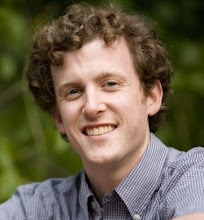 A bit of a dust-up going on over in Jungleland: Columbia Records produced a Bruce Springsteen & the E-Street Band "Greatest Hits" album that is being sold exclusively at Wal-Mart. Naturally, some fans have questioned the move, given the apparent differences of opinion between Bruce and Wal-Mart on issues such as manufacturing and labor. In fact, it seems like Wal-Mart fits the bill for the anonymous evil force in a lot of Bruce's songs, especially on an album like Darkness on the Edge of Town. Come to think of it, where does Wal-Mart usually build? Not in the center of town, but...
A bit of a dust-up going on over in Jungleland: Columbia Records produced a Bruce Springsteen & the E-Street Band "Greatest Hits" album that is being sold exclusively at Wal-Mart. Naturally, some fans have questioned the move, given the apparent differences of opinion between Bruce and Wal-Mart on issues such as manufacturing and labor. In fact, it seems like Wal-Mart fits the bill for the anonymous evil force in a lot of Bruce's songs, especially on an album like Darkness on the Edge of Town. Come to think of it, where does Wal-Mart usually build? Not in the center of town, but...I looked at the track listing, and frankly it looks like they let Wal-Mart pick the songs, too. Rosalita, Born to Run, Thunder Road, Badlands, Born in the USA - those are probably essential. The Rising and Lonesome Day are pretty good, too, though it's questionable whether they both belong on a twelve-track Greatest Hits collection. I was pleasantly surprised to see Darkness on the Edge of Town (the song), because it is one of my favorites and was left off the 1995 Greatest Hits album. But Glory Days and Dancing in the Dark aren't even in the top five on the album they were released on (Born in the U.S.A.), and I like to pretend that Hungry Heart never existed.
They might as well have put Secret Garden on there, just to top it off. It's kind of a lowest common-denominator approach, which I guess is how mass-marketing works, and that's the business Wal-Mart and Columbia are in. To an extent, so is Springsteen; who are we kidding? I can be okay with that. For what it's worth, Springsteen called the deal a 'mistake' in a recent interview.
If it were up to me, and I had to choose a 12-song album, here it is (and I hope you can appreciate how difficult this is, and how long it took me):
- Spirit in the Night
- Racing in the Street
- Darkness on the Edge of Town
- Backstreets
- Thunder Road
- The River
- Atlantic City
- Highway Patrolman
- I'm on Fire
- This Hard Land
- Youngstown
- The Rising
I left off two biggies: Born to Run, and Badlands. They're really two of my favorite songs. I guess this list is more of an effort to pick the greatest songs, without picking all the songs that have been on his other compilations, and without feeling obligated to put something that he released between 1985 and 1995. We all have slumps. It's important to be able to acknowledge them, and move on.



